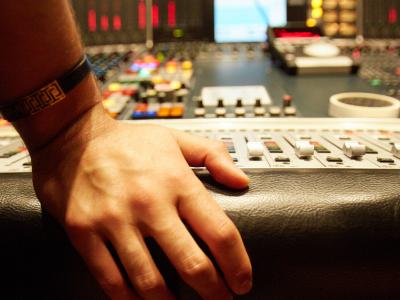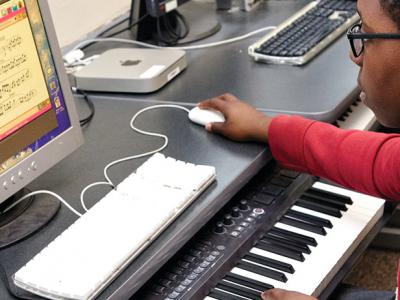What does a Dialogue Editor (Film, TV, and Video Games) do?
While the specific duties of a dialogue editor can vary widely based on industry or the project's scope and budget, the core job is to ensure that dialogue audio is clean, matches the visual action, and fits with the world of the production. This could mean cleaning up pops, clicks, and artifacts; adjusting levels; equalizing voices; devising process patches in order to modulate voices (e.g. so that a voice sounds like it is coming from a walkie-talkie or belongs to a humanoid creature); and reviewing the visuals to make sure that every miniscule mouth movement syncs with the sound.
Because post-production sound is entirely separate from production sound in the film and TV industries, film and TV dialogue editors tend to focus on editing raw voice recordings that were captured beforehand by boom operators and production sound mixers on set. However, in some cases, dialogue editors might also be involved in recording dialogue audio in-studio with ADR recordists.
In comparison, video game industry dialogue editors work almost exclusively with studio-recorded audio, which means they have the opportunity to assume broader creative oversight of the game's dialogue, including leading recording sessions with voice talent. It also means that additional effects often need to be applied to match the in-game spaces in which dialogue takes place (e.g., a cramped cave or a dense forest). Additionally, because video game dialogue is usually responsive to a player's choices, the dialogue editor may work closely with game designers to define the events and states to which the in-game speech system will respond; the outcome of these choices may determine the content of the voice-over recording scripts.
At a Glance
Film and TV
As a variety of sound editor, film and TV dialogue editors might also work freelance gigs as music editors or effects editors—the other two primary branches of post-production sound. Those with experience in all three are well-suited to work as re-recording mixers, balancing every element of a soundtrack for a film or show, or as the supervising sound editor for a project, leading the design, creation, modification, and implementation of all audio elements.
Video Games
Dialogue editors for video games may also work as sound designers, a catchall position that largely revolves around finding, creating, and modifying sound effects. They are also likely to have some experience in video game audio implementation. Senior dialogue editors may be picked as the audio director or audio lead for a project.
Although the majority are freelance, dialogue editors can also be part- or full-time employees of an audio production house, video game studio, or movie studio. Beginning dialogue editors may work for little or no pay on independent and student games and films in order to build their résumés.
Game audio is a growing field, and aspiring video game dialogue editors will need to be avid networkers who can make connections with industry figures to get a foot in the door. Veterans recommend attending gaming events such as the Game Developers Conference to make personal connections with developers.
- Audio editing and processing
- Audio mixing
- Audio recording
- Avid
- Pro Tools
- DAWs
- Good ears for detail and nuance
- Time management
Like most sound editors, dialogue editors must be focused, detail-oriented, and perfectionistic. As a member of a larger audio editing team, it's essential that dialogue editors have strong communication skills and work well with the group. Also vital is the ability to remain clearheaded and focused while working under pressing deadlines, which are all too common in the worlds of film, TV, and video games.
Depending on the project and their responsibilities, dialogue editors may spend the bulk of their time hunched over a workstation with headphones on, or be absorbed in meeting with the story department, brainstorming with designers, receiving progress reports from editors, and directing voice actors.
Schedules generally adhere to standard business hours although workdays can be quite long, especially when deadlines are looming. Independent contractors might work on a project for anywhere from a month to many years, and take short breaks between projects to catch their breath.




